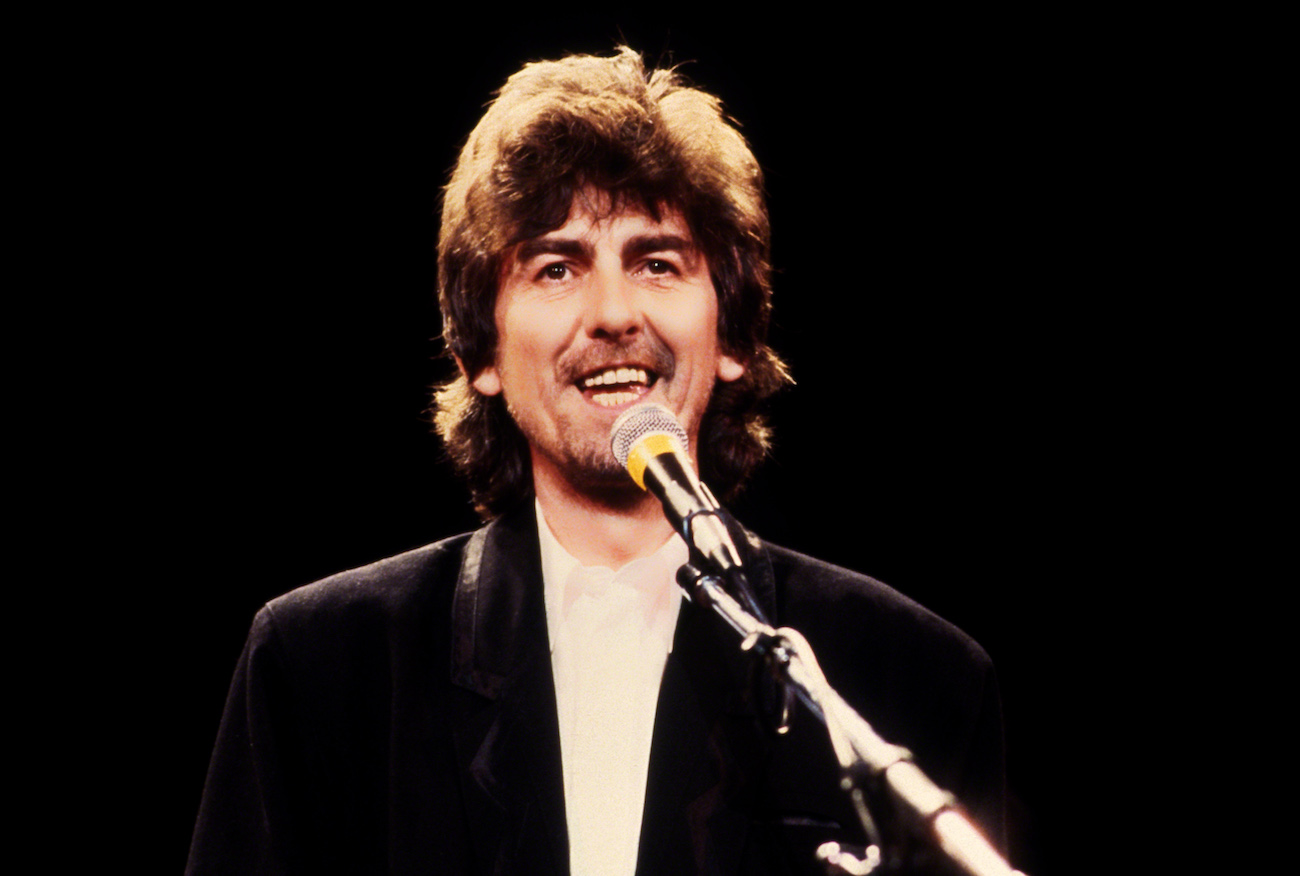George Harrison Taught Tom Petty That ‘There’s Nothing to Be Gained by Bitterness or Anger, Hatred’
George Harrison could be cynical when he wanted to be, but his friend Tom Petty said he was always humorous about it. However, the former Beatle never let his pessimism turn into bitterness, anger, or hatred. As he taught Petty, one could gain nothing by having those feelings. One’s journey for answers to the universe is always more important.

Tom Petty said George Harrison could be funny even when he was being cynical
George could be very cynical about things. It came from growing up poor in Liverpool in the 1940s. Plus, getting worn out by The Beatles. However, he knew how to keep things humorous. Tom Petty experienced George’s dry, cynical humor.
In a special edition of Rolling Stone called “Remembering George,” Petty said, “George really said everything that crossed his mind. I used to say, ‘You really can’t get a thought to your brain without it slipping out your mouth.’
“And he was painfully honest. It was an endearing trait, but sometimes you hoped that he wouldn’t be quite as honest as he was going to be.
“Let’s be honest. There was Cranky George, and he could be very cynical at times. He would always be the first to nail himself as being too cynical, but he was quite funny when he was really cynical. But he was very funny, like, ‘The Beatles, they weren’t all that they were cracked up to be’ [laughs].”
George taught Petty not to be bitter or angry
Even as George was cynical about fame, the press, record companies, and fans’ expectations, he never let anger and pessimism rule his life.
“I’ll tell you, the media wasn’t very sweet in the last year of his life,” Petty said. “He was probably the most hounded of his whole life when he was trying to deal with that. Especially in Europe, he never got a moment’s peace. He would have helicopters follow him when he left the house.
“I guess that comes with the territory. That’s part of the price you pay. He paid that price so many times — well, overpaid. But he’d be the first to say there’s nothing to be gained by bitterness or anger, hatred. I don’t know how many times he would remind me that bitterness or pessimism is only going to slow you down finding the solution. And he lived that way.”
Instead, George chose to be enthusiastic about music, friends, family, and spirituality. “His enthusiasm was very contagious in a recording session, in a writing session,” Petty continued. “He just had unbridled enthusiasm.”
The former Beatle came to terms with his anger
For the most part, George came to terms with the things that made him angry in life. He dealt with a lot in The Beatles. John Lennon, Paul McCartney, and the band’s producer George Martin acted condescendingly toward his songwriting. Paul treated him like a glorified session man most of the time.
Meanwhile, George wrestled with the negatives of fame. “Every year we were Beatling was like twenty years; so although it might only have been five or six years it seemed like eternity,” George told Rolling Stone in 1979.
“I mean, a lot of the time it was fantastic, but when it really got into the mania it was a question of either stop or end up dead. We almost got killed in a number of situations – planes catching on fire, people trying to shoot the plane down and riots everywhere we went. It was aging me.”
George also didn’t like the fans who couldn’t let go of The Beatles once they broke up. “They don’t have consideration for our well-being when they say, ‘Let’s have the Fab Four again,'” George said.
“It’s all well and good being popular and being in demand, but, you know, it’s ridiculous,” George told Rolling Stone in 1987. “I realized this is serious stuff, this is my life being affected by all these people shouting.”
“If you had 2 million people screaming at you, I think it would take a long time to stop hearing that in your head,” George’s wife Olivia said. “George was not suited to it.”
George’s biggest concern was finding answers to life. So, he put his bitterness about everything that had happened during his time in the band behind him and what continued to happen as the world dissected his every move.
When it came time for George to leave his body, he only focused on what he’d find when he left this world for the next. Not the helicopters circling above him.


